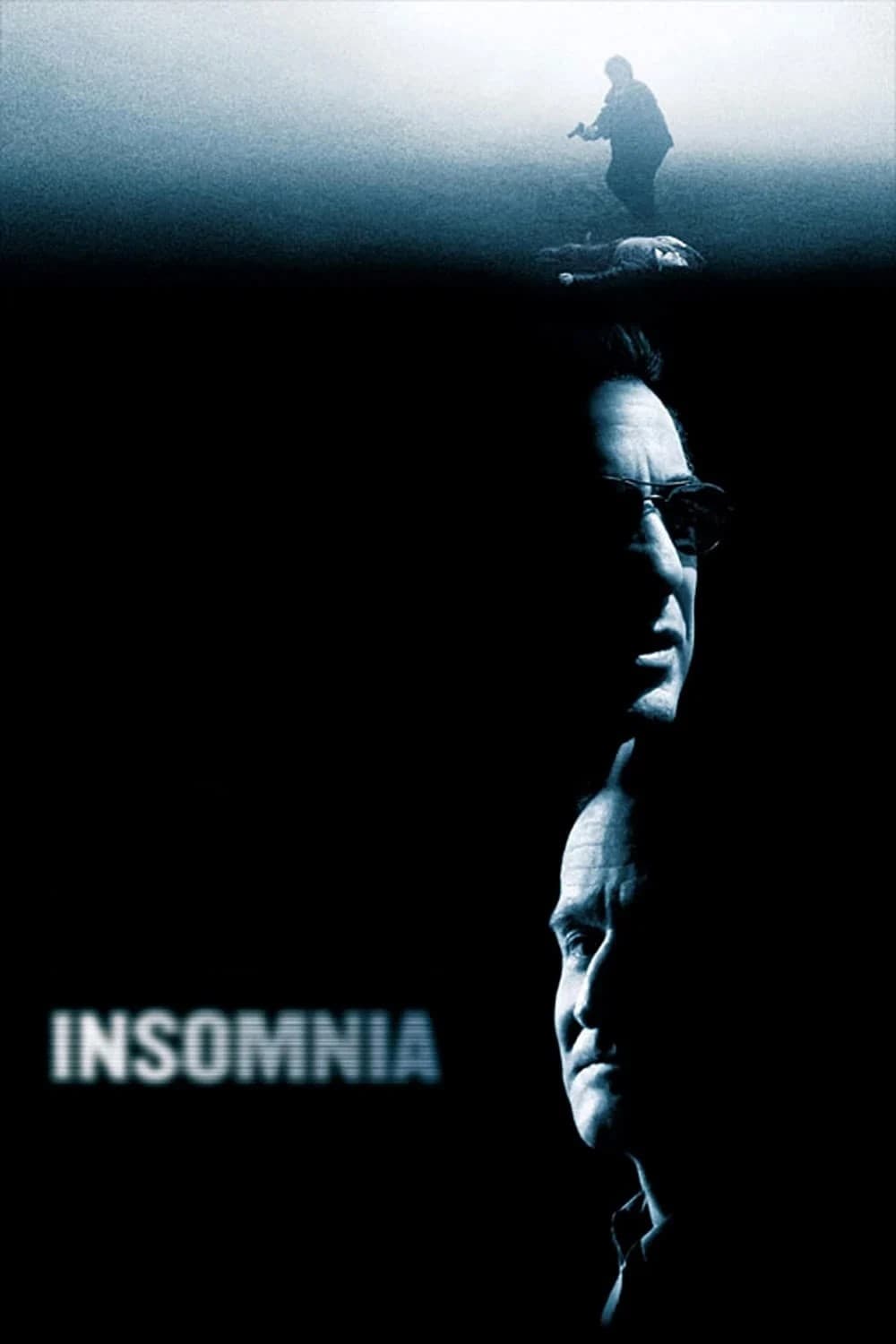
Two Los Angeles homicide detectives are dispatched to a northern town where the sun doesn't set to investigate the methodical murder of a local teen.
27 Oct Insomnia (2002)
Waking Life
The element that makes cinema unique is the ability to fold: to shuffle time and narrative both by the mind and eye.
Nolan showed great promise with ‘Following’, built around a very ambitious narrative structure. It moved the notion of narration way in front of the camera and even beyond, in front of a character’s eye but behind his mind. Other experiments have tried this from the failed ‘Watcher,’ to ‘Snake Eyes’ and ‘Body Double’. Nolan failed because his story had too many noir complications — plus it is difficult to simultaneously twist both the story and the narration of the story.
He solved that in ‘Memento.’ A successful project which amazed more with its competent handling of the problem than in the value of the experience of actually watching it. It promised much of a future from someone who understand what film was all about. But as with Soderbergh, that promise is dashed. I am sure that Nolan believes his new sponsor, Soderbergh, that you can alternate commercial projects with the more personal work (like his ‘Limey’). We’ll have to see in both cases.
But as to this project, it fails. The notion of the original was clever: history can be changed by shifting evidence, and that shift can make the merely true truly true. (`Lone Star.’) The backbone is the story of cop who planted evidence to catch the real crooks and is mirrored by a mystery writer who worked the other way. His quest involved making his murder fiction more powerful by inserting a real murder in it, then mirroring the reporting on the page with the reporting to a cop. The idea went further into Nolan/Soderbergh territory by having the ‘narrator’ experience sleep deprivation which produces hallucinations and memory transformation of the sort that influences perception and especially memory. This is the stuff that involves the viewer in confusion about what is true, or so it was intended.
But no one seems to have told Pacino, as if he would have listened anyway. Any opportunity to introduce ambiguity is completely wasted by him. He hallucinates from Robin’s eyes but makes no note of it. He has a recurring Lady Macbeth moment of the indelible blood, but we get no feel for the shifting of memory as a stain. At the end, no one in the theatre got the intended ambiguity of whether he knowingly shot his partner or not. The intended point was that he didn’t know now, but my whole audience believe it was settled as a revelation.
Swank, who knows something about acting about acting, plays a mere Sandra Bullock role here. What a waste. Robin Williams gives — surprisingly — the best performance of the project, which should be a real warning. Little is made of the fact that he is a writer of detective stories. That the letters (do they exist?) from the murdered girl were good poetry, elicited by him in her mind just as he (in the original film) enters Pacino’s mind.
Is Pacino’s character a live worth living? We are supposed to wonder? Will Nolan have a film life worth living? We wonder.
Posted in 2002
Ted’s Evaluation — 3 of 3: Worth watching.


No Comments